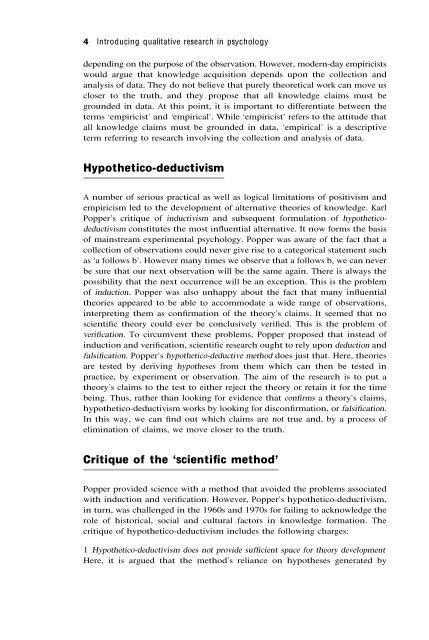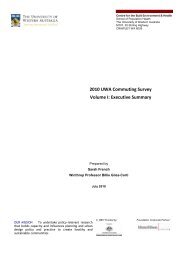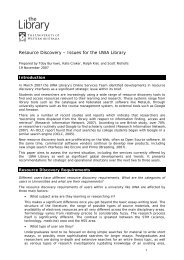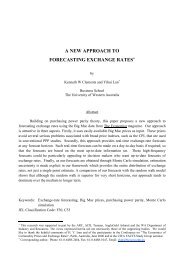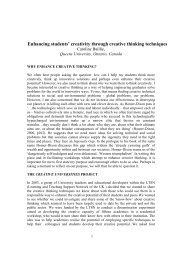Adventures in theory and method
Adventures in theory and method
Adventures in theory and method
You also want an ePaper? Increase the reach of your titles
YUMPU automatically turns print PDFs into web optimized ePapers that Google loves.
4 Introduc<strong>in</strong>g qualitative research <strong>in</strong> psychologydepend<strong>in</strong>g on the purpose of the observation. However, modern-day empiricistswould argue that knowledge acquisition depends upon the collection <strong>and</strong>analysis of data. They do not believe that purely theoretical work can move uscloser to the truth, <strong>and</strong> they propose that all knowledge claims must begrounded <strong>in</strong> data. At this po<strong>in</strong>t, it is important to differentiate between theterms ‘empiricist’ <strong>and</strong> ‘empirical’. While ‘empiricist’ refers to the attitude thatall knowledge claims must be grounded <strong>in</strong> data, ‘empirical’ is a descriptiveterm referr<strong>in</strong>g to research <strong>in</strong>volv<strong>in</strong>g the collection <strong>and</strong> analysis of data.Hypothetico-deductivismA number of serious practical as well as logical limitations of positivism <strong>and</strong>empiricism led to the development of alternative theories of knowledge. KarlPopper’s critique of <strong>in</strong>ductivism <strong>and</strong> subsequent formulation of hypotheticodeductivismconstitutes the most <strong>in</strong>fluential alternative. It now forms the basisof ma<strong>in</strong>stream experimental psychology. Popper was aware of the fact that acollection of observations could never give rise to a categorical statement suchas ‘a follows b’. However many times we observe that a follows b, we can neverbe sure that our next observation will be the same aga<strong>in</strong>. There is always thepossibility that the next occurrence will be an exception. This is the problemof <strong>in</strong>duction. Popper was also unhappy about the fact that many <strong>in</strong>fluentialtheories appeared to be able to accommodate a wide range of observations,<strong>in</strong>terpret<strong>in</strong>g them as confirmation of the <strong>theory</strong>’s claims. It seemed that noscientific <strong>theory</strong> could ever be conclusively verified. This is the problem ofverification. To circumvent these problems, Popper proposed that <strong>in</strong>stead of<strong>in</strong>duction <strong>and</strong> verification, scientific research ought to rely upon deduction <strong>and</strong>falsification. Popper’s hypothetico-deductive <strong>method</strong> does just that. Here, theoriesare tested by deriv<strong>in</strong>g hypotheses from them which can then be tested <strong>in</strong>practice, by experiment or observation. The aim of the research is to put a<strong>theory</strong>’s claims to the test to either reject the <strong>theory</strong> or reta<strong>in</strong> it for the timebe<strong>in</strong>g. Thus, rather than look<strong>in</strong>g for evidence that confirms a <strong>theory</strong>’s claims,hypothetico-deductivism works by look<strong>in</strong>g for disconfirmation, or falsification.In this way, we can f<strong>in</strong>d out which claims are not true <strong>and</strong>, by a process ofelim<strong>in</strong>ation of claims, we move closer to the truth.Critique of the ‘scientific <strong>method</strong>’Popper provided science with a <strong>method</strong> that avoided the problems associatedwith <strong>in</strong>duction <strong>and</strong> verification. However, Popper’s hypothetico-deductivism,<strong>in</strong> turn, was challenged <strong>in</strong> the 1960s <strong>and</strong> 1970s for fail<strong>in</strong>g to acknowledge therole of historical, social <strong>and</strong> cultural factors <strong>in</strong> knowledge formation. Thecritique of hypothetico-deductivism <strong>in</strong>cludes the follow<strong>in</strong>g charges:1 Hypothetico-deductivism does not provide sufficient space for <strong>theory</strong> developmentHere, it is argued that the <strong>method</strong>’s reliance on hypotheses generated by


